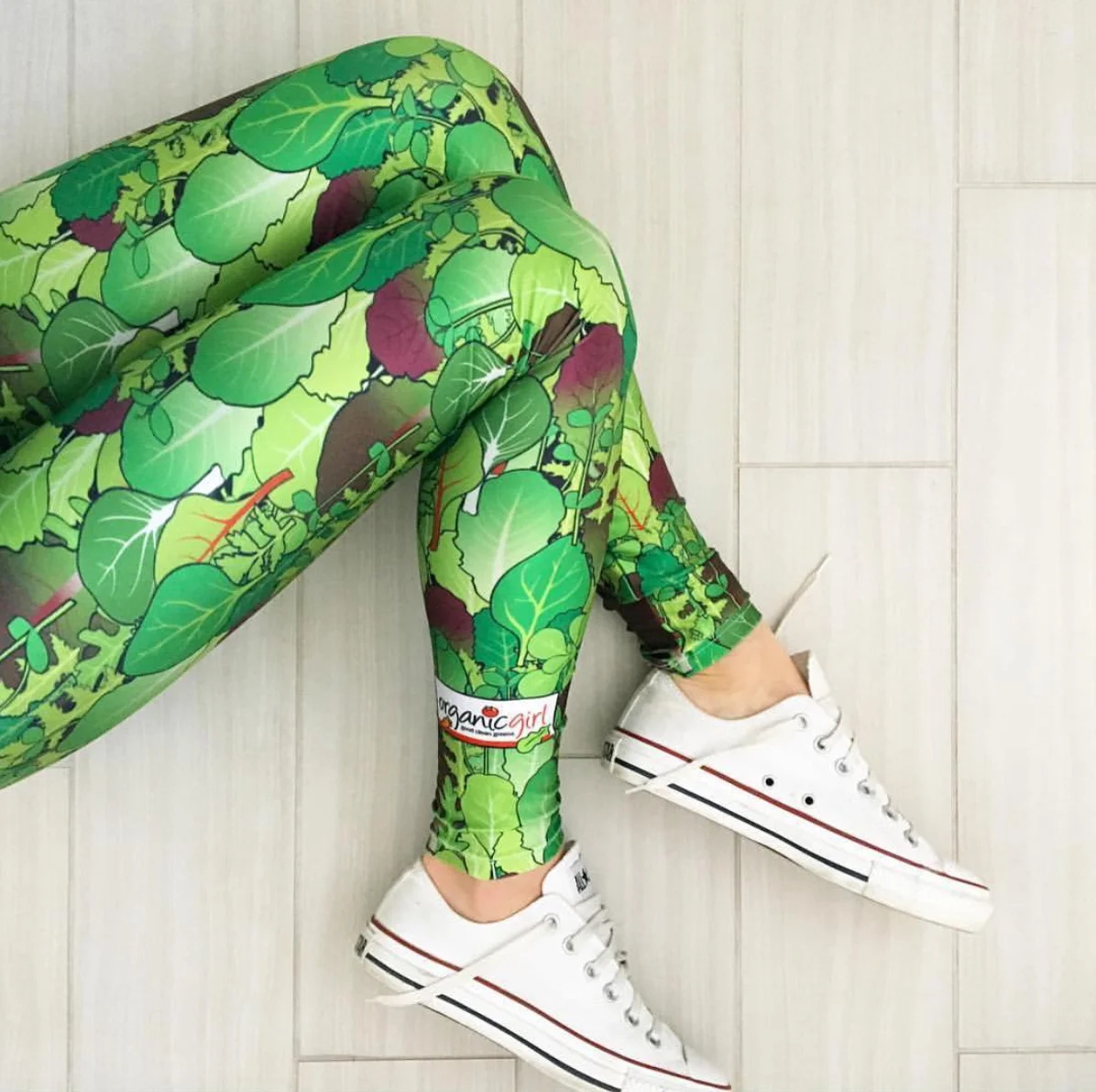Meet Our Latest Clean Food Crush
A love-at-first-bite kind of romance that we can definitely see evolving into a (healthy) long-term relationship.
The COVID-19 crisis has forced many of us to adapt to a WFH lifestyle. While I’m sincerely grateful for a job that allows me the flexibility to work from home, this can be both a blessing and a curse come mealtime. Work week meal prep is a task all of its own, and even months into my routine, I still haven’t quite figured out the proper WFH lunch / dinner routine. No matter how much I meal prep or plan the menu ahead of time, sometimes, my cravings are off-menu. Cue my latest obsession: Daily Harvest, a collection of over 80 recipes including smoothies, soups, oats, lattes and more, built from fruits and vegetables and delivered straight to your door – that also happens to be incredibly delicious.
As someone who lives a primarily plant-based lifestyle, Daily Harvest has been a total lifesaver. On days where a midday or evening meal would typically involve a spoonful of peanut butter or spending money on unnecessary (and unhealthy) takeout, Daily Harvest has saved the day with its nourishing, chef-crafted food. Aside from convenience, Daily Harvest boasts numerous other reasons that have courted me into making it my latest clean food crush – a love-at-first-bite kind of romance that I can definitely see evolving into a (healthy) long-term relationship.
“A love-at-first-bite kind of romance that I can definitely see evolving into a (healthy) long-term relationship.”
The longer we embrace the WFH life, the more we learn to celebrate the small wins –whether you put on real pants, made your bed, went outside today or made time for a good breakfast – recognizing these small wins is what we’re am all about these days. Daily Harvest can be that small win – one good choice you can make for yourself, that makes you feel good. Read on for all the ways that Daily Harvest became the small win I could not only count on, but actually look forward to.
Photo: Courtesy of Daily Harvest
Win #1: Healthy, Clean – and Sustainable
Okay – that’s technically three wins. Daily Harvest chefs and nutritionists craft recipes that are both delicious and free of refined sugars, gluten, fillers, preservatives or artificial anything. Every recipe is built on organic fruits and vegetables and crafted into delicious food that is actually good for you. The company invests their resources into reducing food waste, prioritizing organic farming practices, and going the extra mile for 100% compostable + recyclable packaging made from plant-based, renewable fiber that break down naturally instead of sitting in a landfill for thousands of years.
Daily Harvest freezes its ingredients at peak ripeness to lock in nutrition and taste. For example, cauliflower retains 50% more antioxidants when frozen the day of harvest versus refrigerated options three days after harvest, and berries frozen the day of harvest retain 200% more vitamin c than fresh berries just three days after harvest.
Win #2: Convenient, One Step Prep
Whether you're juggling way more than you planned, tired of cooking or just need to take the night off — Daily Harvest is delivered straight to your door and ready in minutes for when you need it most, so you can have your time back for the things you need it for the most.
Everything takes only one step to prep. Just blend, soak or heat according to the instructions, and enjoy. Little prep, no mess! They’re so quick that my coworkers (incorrectly) assumed I hit the pause button in the middle of my work day to prepare myself an impressive lunch.
Their latest launch, Mylk is a non-dairy milk made with almonds, pink sea salt and sometimes vanilla bean. It comes in super convenient frozen single serving wedges (each order makes 8, 8-ounce servings). Choose how much you want to make and it can be used with other Daily Harvest food like Smoothies, Lattes, Oat and Chia Bowls. Or, if you’re like me and have ever gone to make your morning coffee only to realize you didn't have any milk or creamer, Mylk is the ultimate one size fits all solution: convenient. It’s always on hand when you need it and ready in seconds, so no more last-minute sprints to the grocery store!
Win #3: Incredibly Delicious
One of my favorite parts about Daily Harvest is the assortment of offerings for breakfast, lunch, dinner, and every snack in between (over 80 recipes, to be exact). I spent a week weaving different dishes into my existing routine. Some of my standout favorites are the Vanilla Bean + Apple Chia Bowl (tip: think breakfast, and beyond – this also makes for a great dessert), the Butternut Squash + Kale Shakshuka Harvest Bowl for those packed mornings where lunch feels far away, Tomatillo + Pepper Flatbread for a quick and healthy dinner, and Espresso Bean + Tahini Bites for a fun mid-meal snack (or an after dinner digestif).
Not only did Daily Harvest make me happier, healthier, and more productive during my workweek, it proved to me that nourishing and convenient food can taste pretty incredible too.
Get $25 off your first box of Daily Harvest with code CREATECULTIVATE
How This LA Business Owner Tries to Live a Zero Waste Life
Waste not, want not.
We’re making zero waste toothpaste in the kitchen of Meryl Pritchard of Kore Kitchen. She’s using an olive wood spoon made from branches; no trees were cut down in the name of the spoon. She uses aloe instead of Bandaids. Her water jug is filled with spring water a friend delivers. Even her TP is made with wheat straw and requires no deforestation.
“Why would we cut down trees so we can wipe our butts?” she asks me as she mixes the concoction of coconut oil, baking soda, turmeric, peppermint, and cinnamon. She scoops it into a glass jar for me to take home.
“The turmeric makes the toothbrush orange,” she tells me, “so don’t get weirded out.”
What’s weird is how little I know about recycling; a blue bin is hardly a perfect solution. “Less than 10 percent of plastic that gets thrown in blue bins is recycled,” she explains. The reasons for this are multifold: people don't sort, rinse, or really know what can and cannot be recycled.
[Unfun fact: In Los Angeles alone nearly 10 tons of plastic fragments-- think parts of plastic bags, straws, and soda bottles-- are carried into the Pacific Ocean, every day.]
Meryl hasn’t always been about that zero waste lifestyle. For a minute she was about that life. In her early twenties she was working for a well-known Hollywood celebrity stylist. “We’d spend days picking dresses, fitting these beautiful women, and then they’d get torn to pieces in the press.” It made her feel terrible about herself and her body. “At the end of the day,” she tells me, “I’d think, if people are saying this gorgeous woman looks terrible, how am I supposed to feel about myself?” It lead her down a dark road rife with body image issues: “I was trying every fad diet out there, not eating,” she says. “Feeling bad in your own skin is the single worst feeling.”
[Define it: Zero Waste is a philosophy that encourages the redesign of resource life cycles so that all products are reused. No trash is sent to landfills or incinerators.]
“Feeling bad in your own skin is the single worst feeling."
Tweet this.
“This is my trash from the past three months!” she exclaims. "I’ll keep it and I’ll analyze it. I like to keep it because then I can go through it and find a solution.We don’t have a relationship to trash. People just don’t know where it’s going-- someone picks it up, takes it away, so how are you supposed to care when you don’t see it?”
But then she came across a book, “The Kind Diet,” by Alicia Silverstone. Meryl says she had so many ah-ha moments while reading, from coming to understand aspects of the food industry to what she was putting in her body, she knew it was time for a change. She emailed “every single holistic nutritionist in LA who had a website and seemed legit,” and was surprised when they all responded nicely. “I was so used to dealing with people not getting back to me or being nice,” she says in reference to her styling career, “that the energy immediately felt different and promising.”
She began working with a holistic nutritionist who let her sit in on all client sessions. “That’s when I saw healing first hand. I watched as people would cancel surgeries doctors told them were 100% necessary, and they’d go on to live life healthy.” With a little experience and a lot of enthusiasm she went back to school at 23. What she says is a “great age to make a shift.”
She attended The Institute for Integrative Nutrition, which teaches over 100 different dietary theories. As she was learning them, she’d try them. “You are the best doctor you can have— you live in your body, you feed it, you feel what doesn’t work.” The hitch was that Meryl had no idea how to cook. “I would go on Google or talk to Siri and ask really basic things like, ‘Siri, how do I cook a chicken breast?’ But it taught me that I can do anything. If you want to, you can figure it out.”
Kore Kitchen evolved naturally from this mindset. Kore is a “curated and nutritionally designed, meal delivery service and cleanse offering based in Los Angeles.” The intention is to help clients adapt a healthier lifestyle through simple nutritional philosophies: eat whole, organic foods, that are local and sustainably sourced.
There's no packaging in her pantry. She fills reusable glass jars with foods from the bulk bins.
With these Kore values in mind she began cooking for friends and delivering meals. “It would take me forever.” she says. “What would take a chef 20 minutes would take me 3 hours, but with food you’re transferring energy into the meals.”
“I was planning the menu, doing the shopping, the cooking, the delivery, and right after I finished I’d get up and do it all over again.”
She had a few clients during this time, but it was when friends and clients Donovan and Libby Leitch recommended her to Gwyneth Paltrow, the business took an unexpected turn. “I delivered her meals and heard nothing for a few months,” she says. Until Goop’s food editor reached out in December 2014, saying they loved her recipes and would she contribute a few to the site. She shared some recipes for Goop’s 2015 Detox Guide and the email floodgates opened.
“It was just me with one pan, in this kitchen, and I had all these orders.” She hunkered down, found a chef, Anna Lagura, whom she met through a happenstance convo with her neighbors across the hall, and signed a lease for a commercial kitchen space. Anna and Meryl now work out of L.A. Prep.
Of Anna, Meryl says, “She’s the person I’m most inspired by. I can send her a photo of any dish and she can make it with our philosophy. And she knows all of the clients and their food preferences by name and memory.” The meals Kore offers are organic and made from local ingredients whenever possible. They use no processed foods, no additives, no antibiotics or hormones, no preservatives, and no refined cooking oils or refined sugars. They are 100% gluten-free and dairy-free.
The business has been running for about a year and a half, and Meryl acknowledges the difficulties of being a self-funded, small business, but insists that she prefers it this way. "No funding required us to be more creative with our marketing," she says, adding "and I think we have a stronger connection to our clients."
“It’s difficult, but it’s also really fun. Business is like life, there shouldn’t be an end goal— you should be learning and growing all the time.”
"Business is like life, there shouldn’t be an end goal— you should be learning and growing all the time.”
Tweet this.
Growth for Kore however, does not include meal delivery services outside of Los Angeles. It is important to Meryl that they stick to their values of staying local. “We’re not a corporation, we’re a small business.”
“I don’t want to grow outside of LA. Local is really important to me because of the carbon footprint. With other meal delivery programs, you have to wonder, why are you in California eating food from North Carolina?”
It’s also why they have partnered with LA Compost, a local compost with four hubs, one of which is five minus from the commercial kitchen space. “All of the food that you’re eating, the scraps are going directly to the compost. Not trucked out of the city and brought back to be sold as soil.” They also now have a plot at the Elysian Valley Community Garden where Meryl is trying out her green thumb.
“We’re not trying to feed everybody,” she says, “we’re trying to feed our community.”
Click through the below gallery to see more of Meryl's zero waste lifestyle and see our toothpaste!
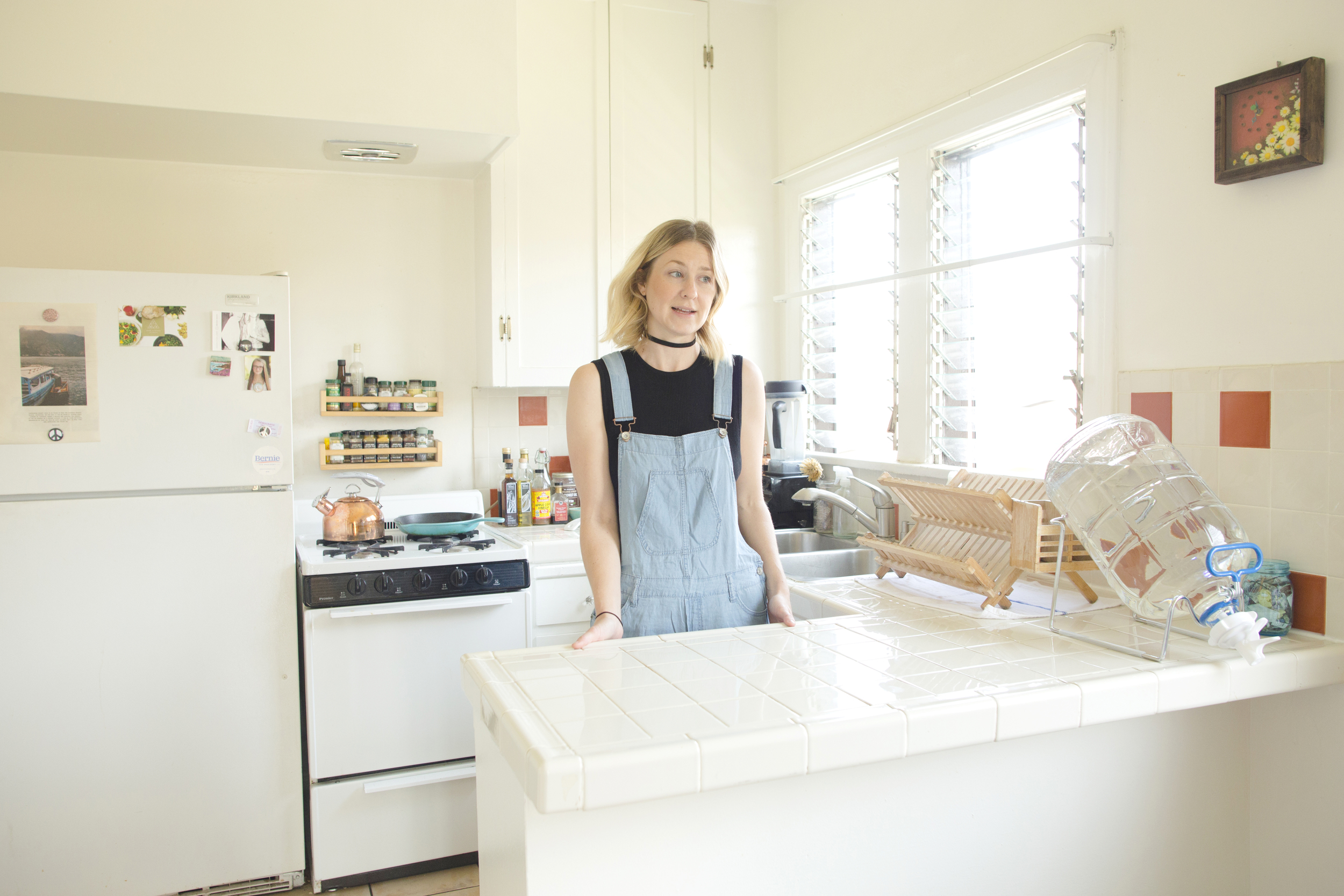
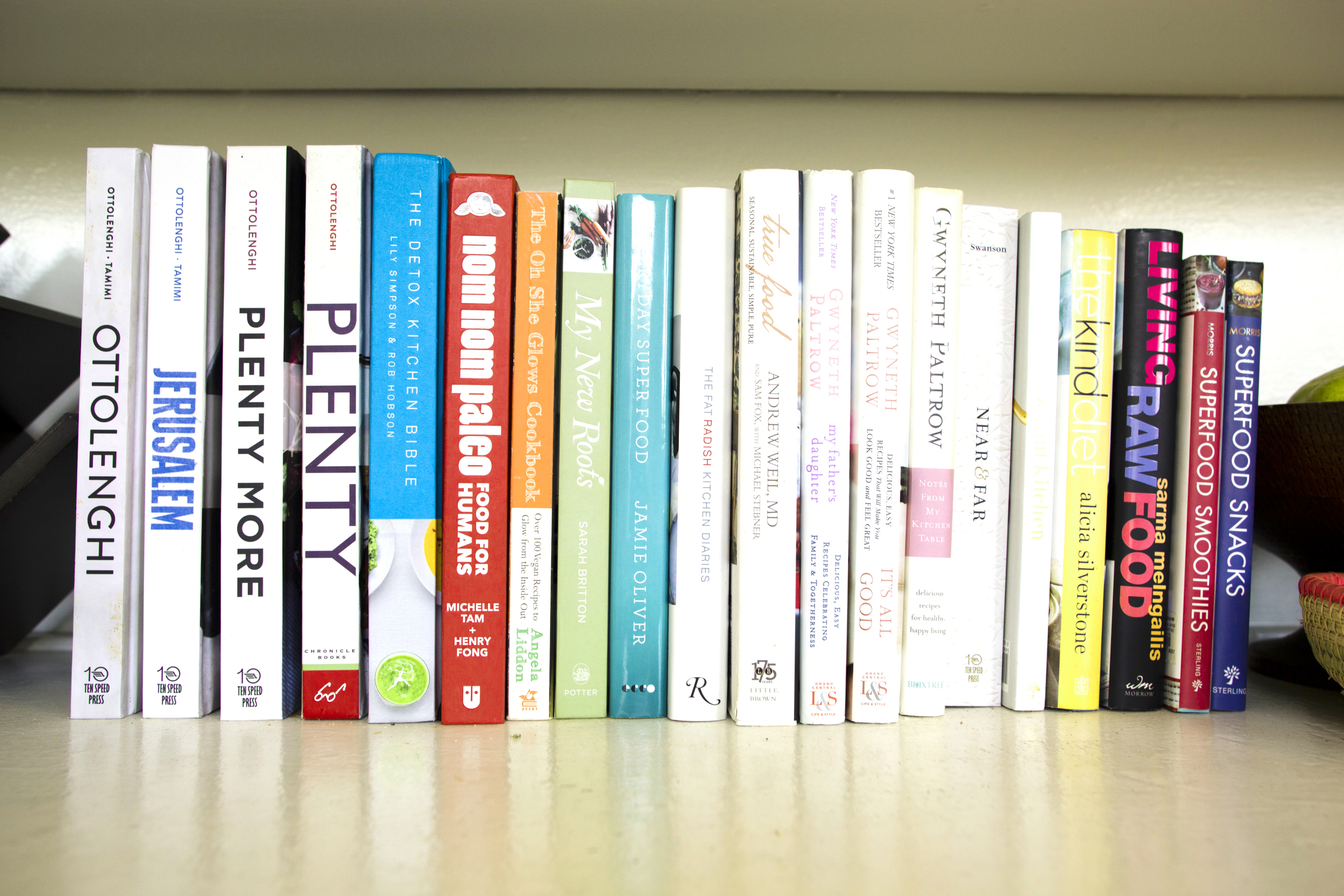
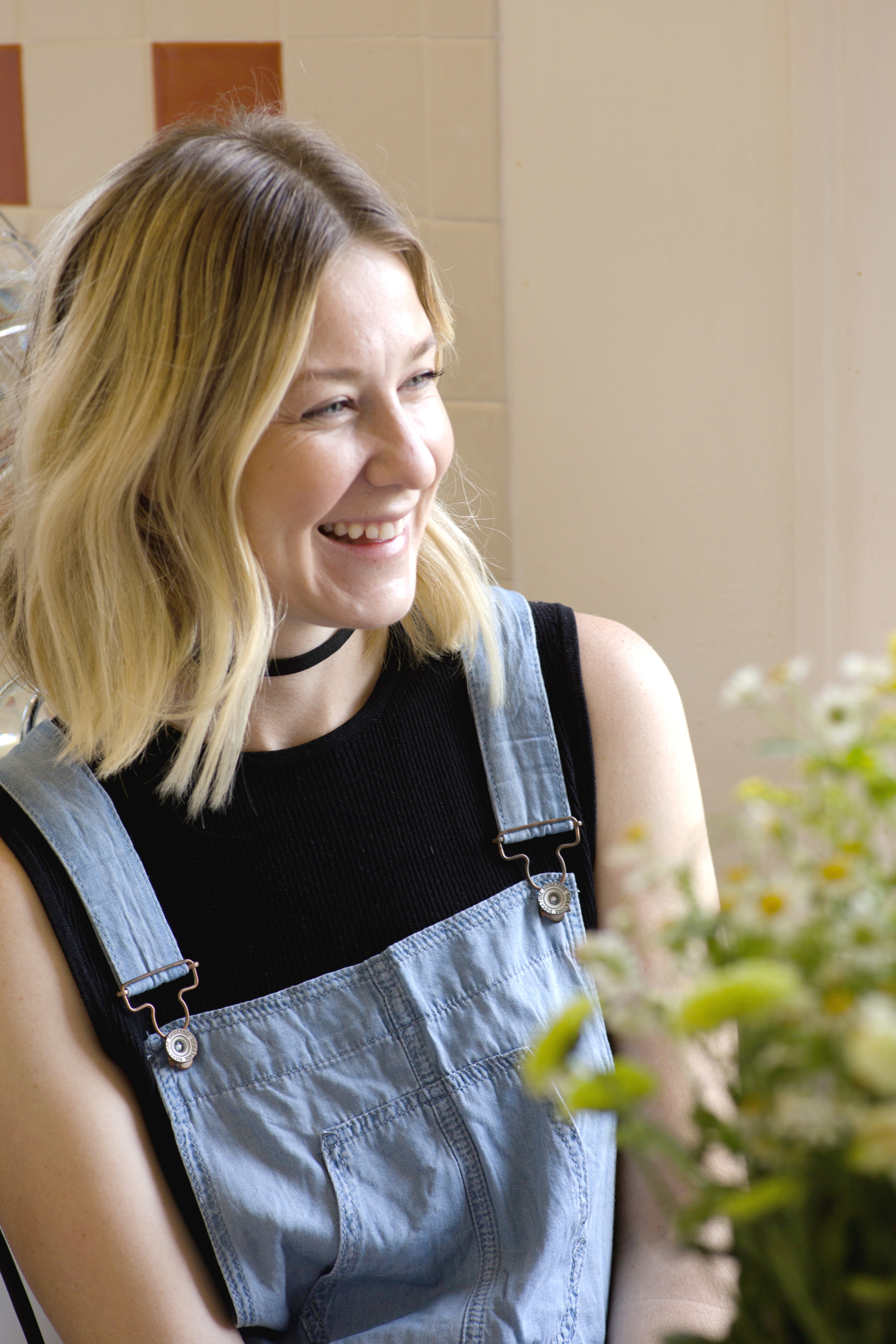
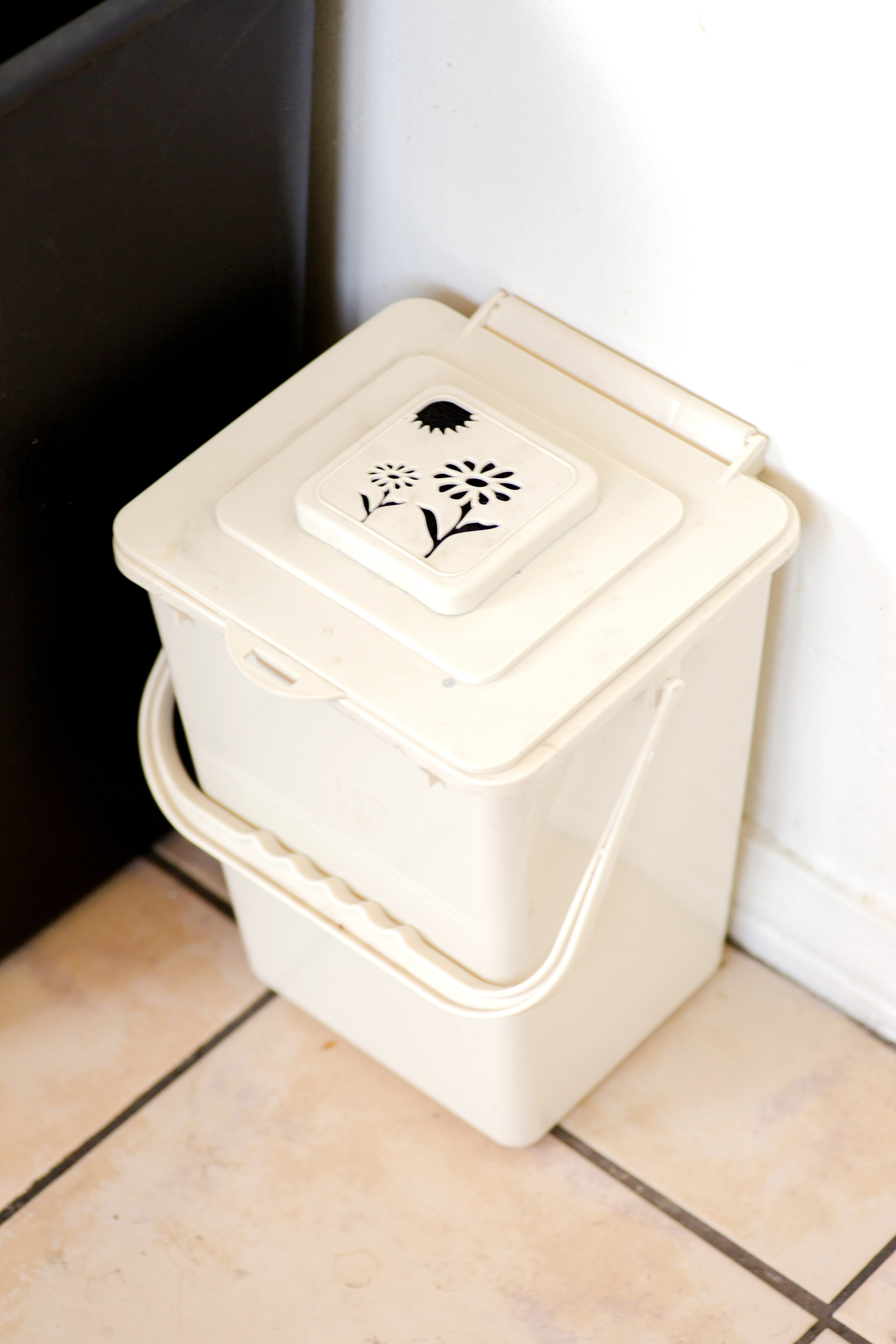
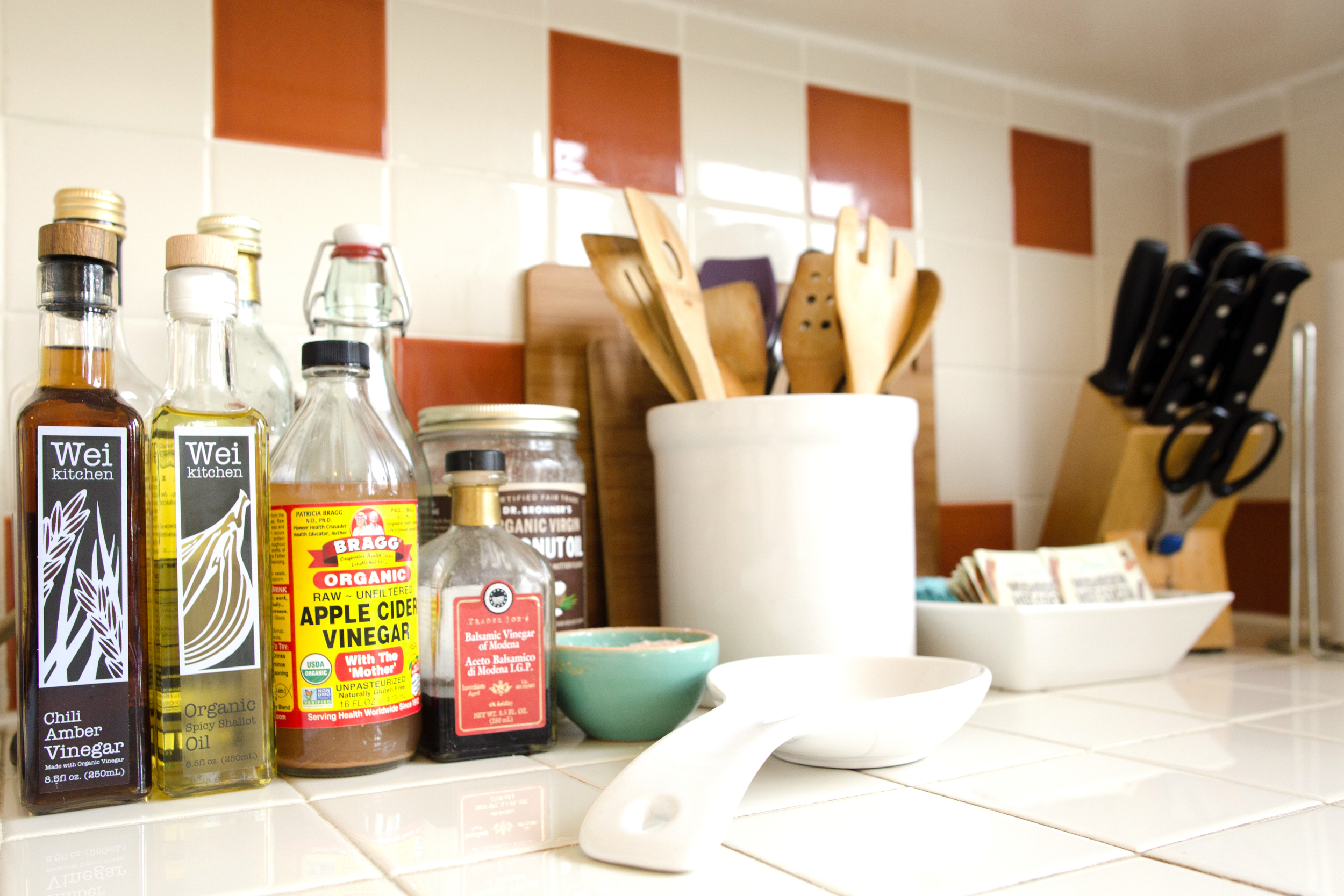
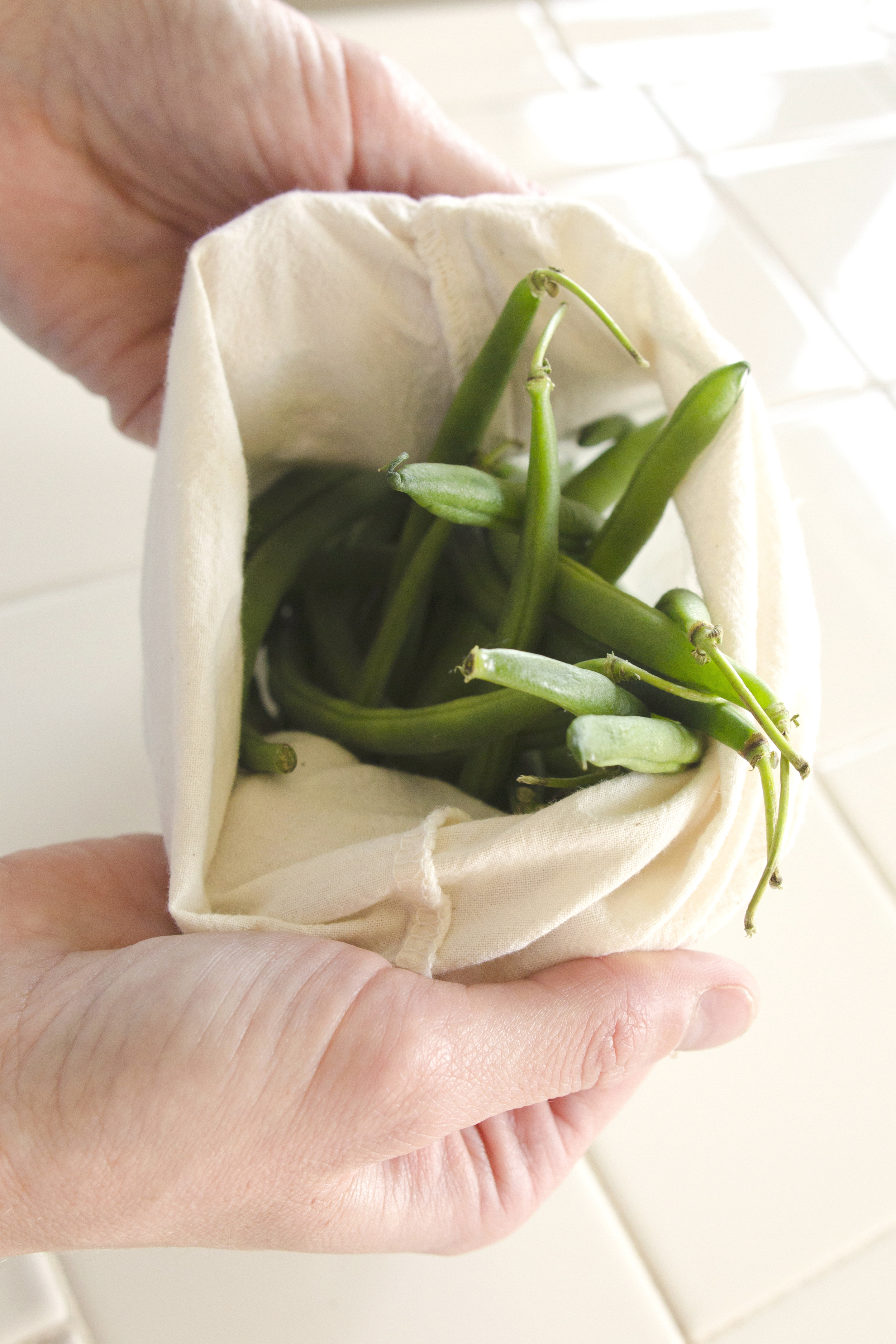
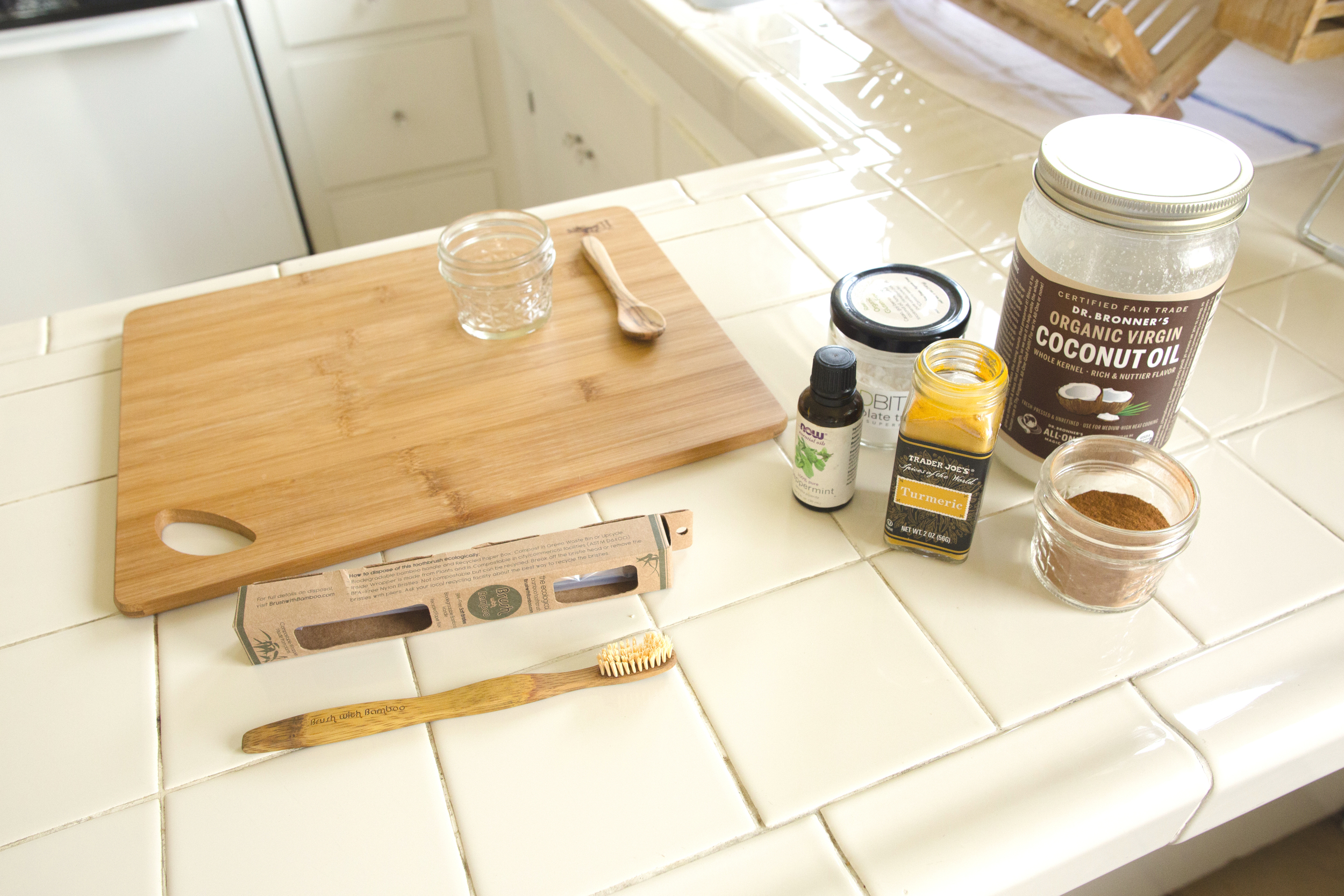
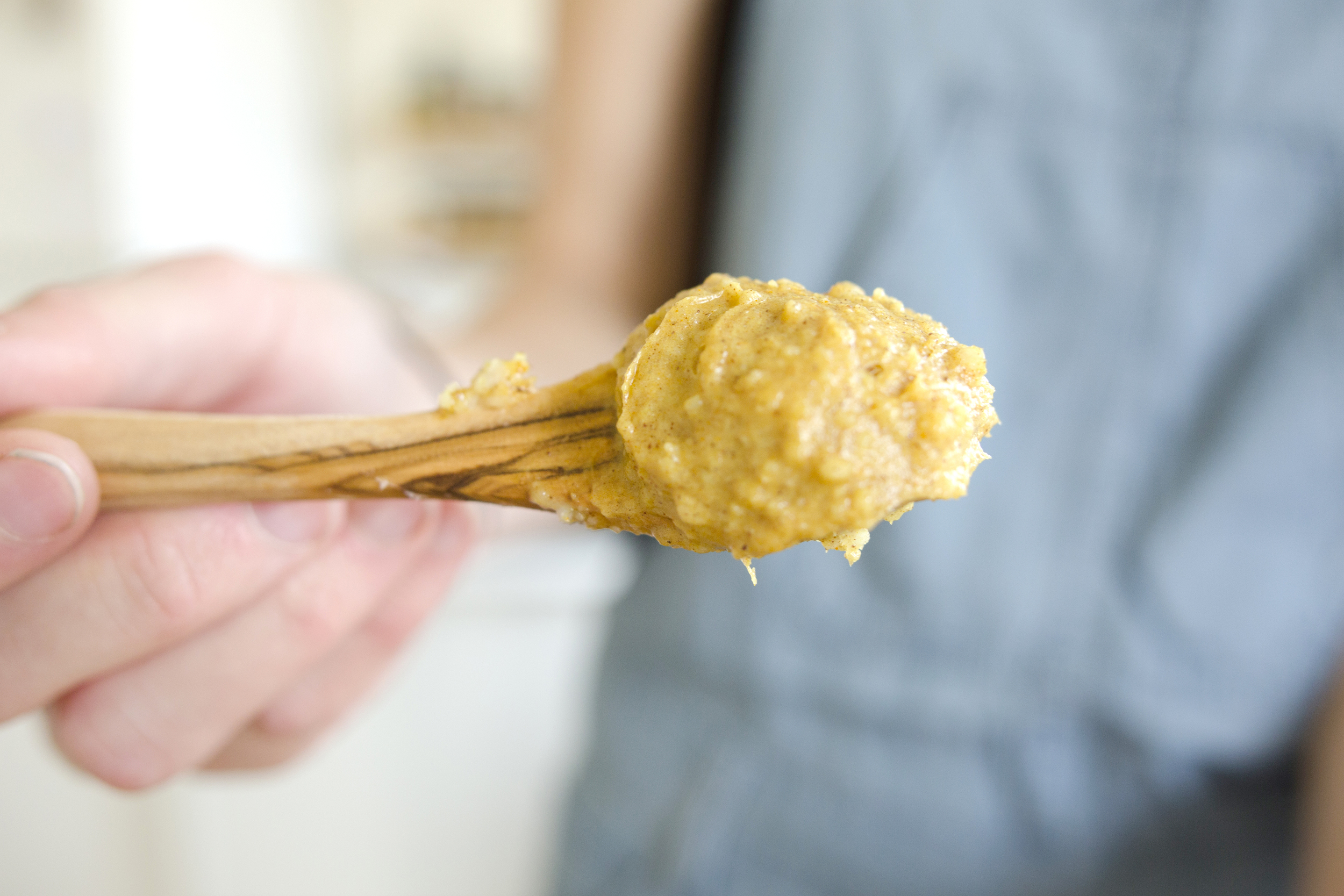
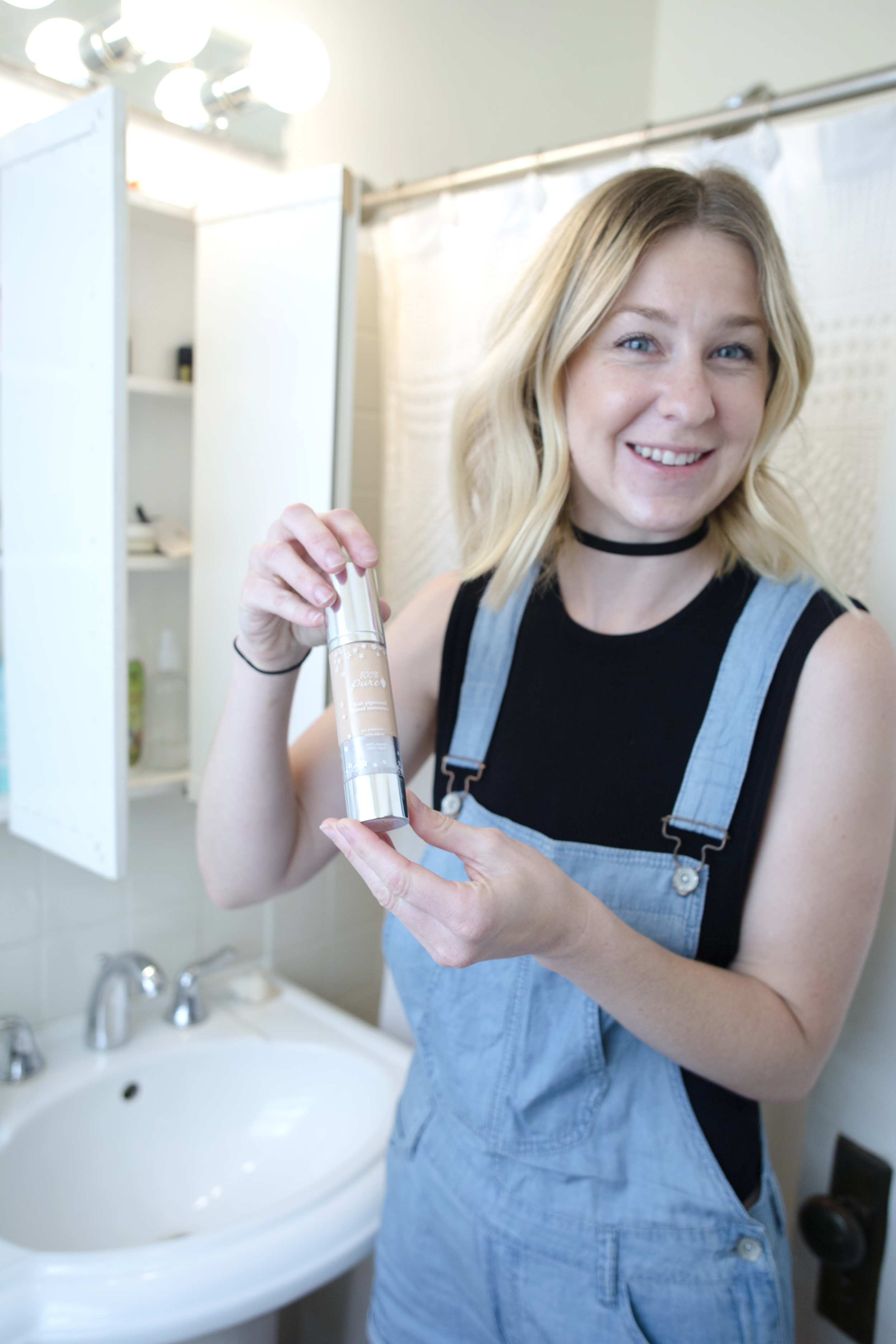
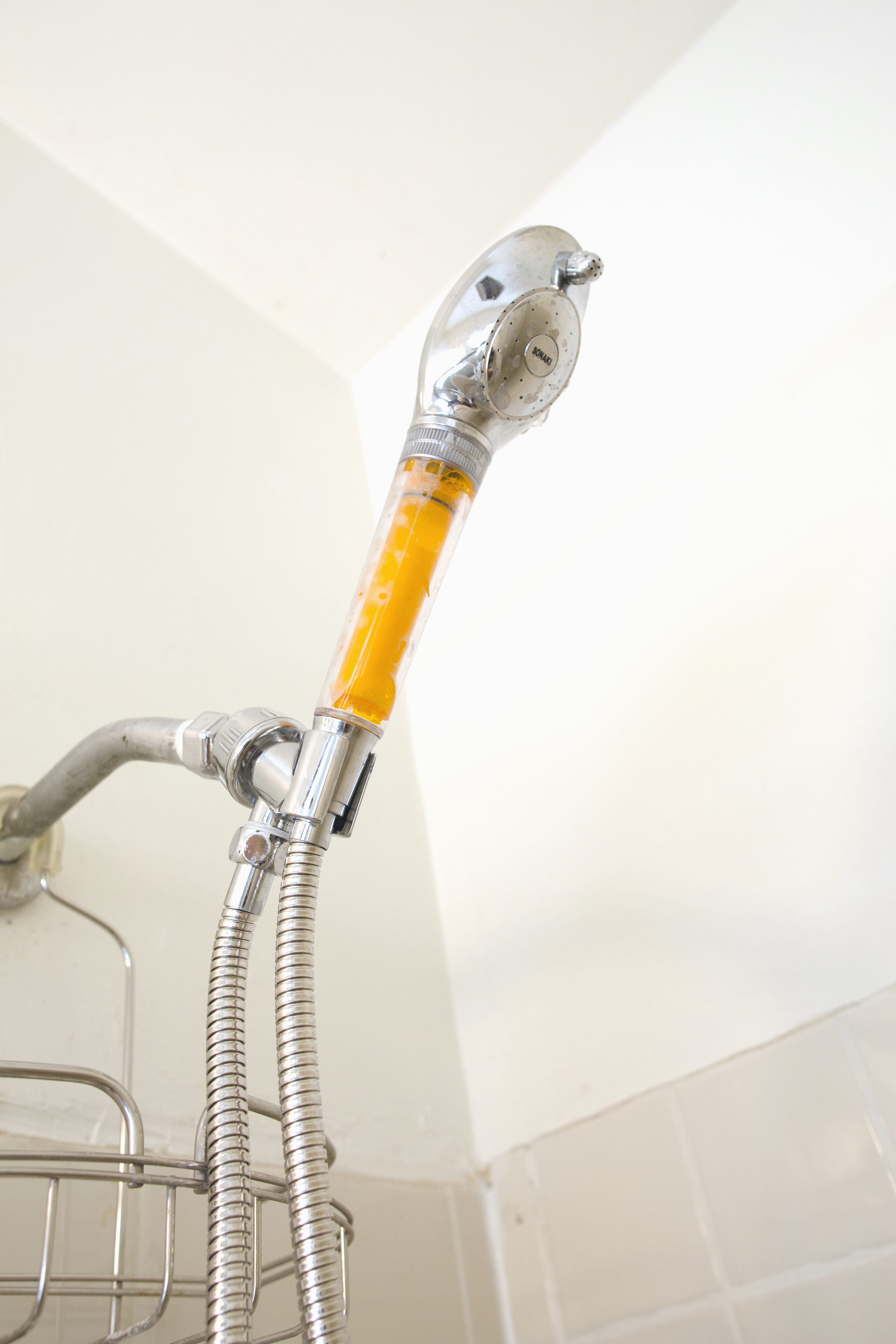
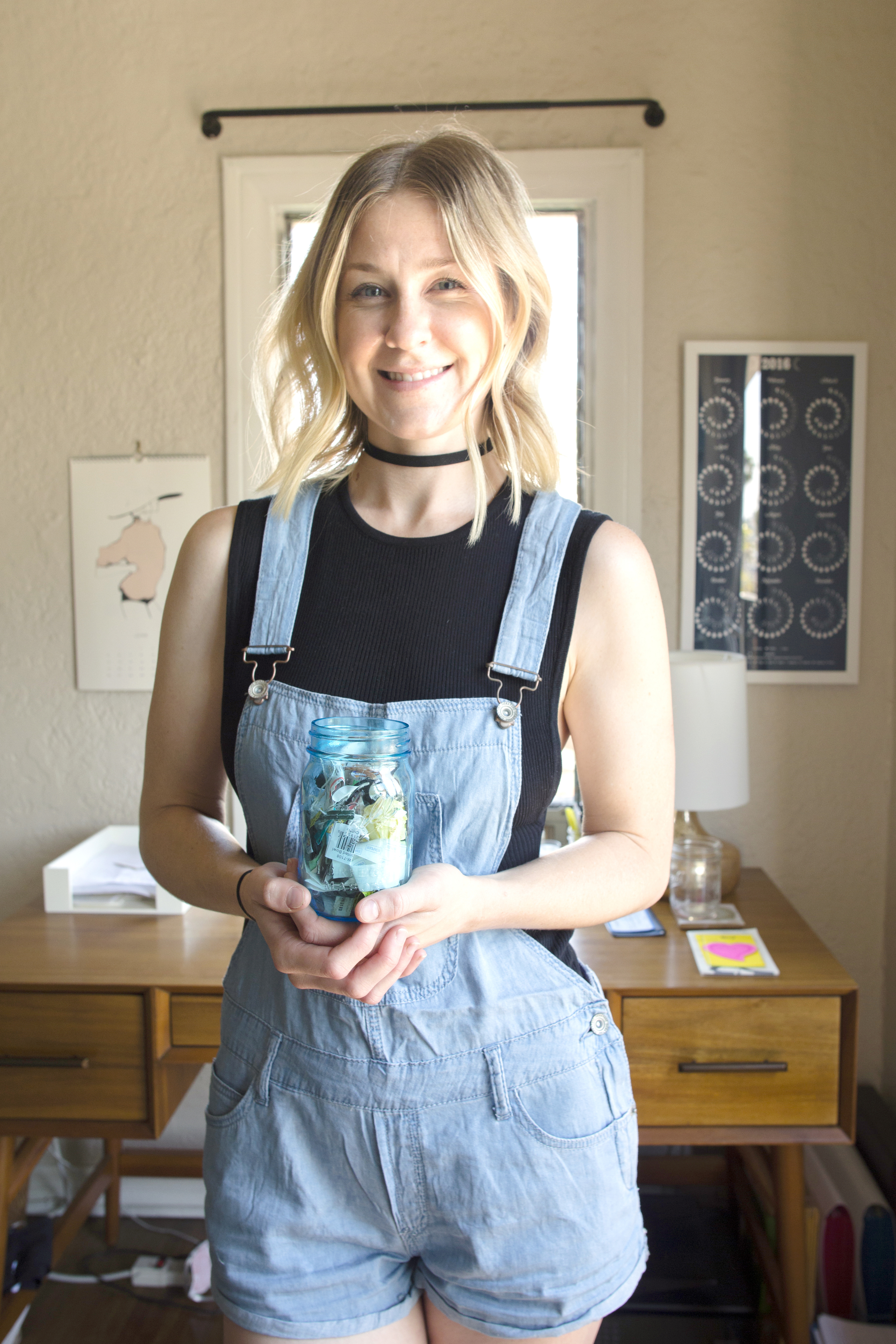
More from our blog:
Forget Your #SadDeskSalad: This Week Do This Instead
Hey you lean, green big-brained machine.
Eating greens makes green. Seriously. Your brain and body are fueled by the vitamins, and antioxidant-rich, superfoods you put in your body. And the more productive/creative/boss you are, the better your career.
Part of getting your life in order is making sure that you eat lunch. Every. Single. Day. People always talk about the benefits of eating breakfast, but that lunchtime slump is no joke. A healthy lunch will keep your energy up (yup!!) and concentration on point.
But you don’t have to pack a sad desk salad.
Get your lunch in order with a Mason Jar Salad. Don’t know how? Well we checked in with our healthy friends at organicgirl to get some tips on how to pack a super smart mason jar salad for lunch to help you eat well, be well and dominate your work week.
Order is the word of the day.
You keep your inbox in order. Same goes for your mason jar salad.
First things first, fill the bottom of your jar with a fresh, delicious salad dressing. This ensures that your salad doesn’t get soggy as you charge through morning meetings and conference calls. organicgirl has so many delicious options. Our favorites include: Kale Parmesan (which gives you the double dose of putting greens on your greens), Lemon Agave (which is the only the only fresh vinaigrette on the market made with an entire lemon and touch of blue agave nectar), or get a little funky with White Cheddar, because everyone loves a hearty treat sometimes (especially when that treat is only 60 calories per 2 tablespoons).
Next, add in a grain or a protein, like farro, which is high in fiber, protein, and is a good source of antioxidants. On this layer, you could also toss in ingredients that taste yummy after marinating. Think: apples, radishes, celery! The crunchy bits.
Next come your fixings: Nuts, dried fruits, and cheese nibbles. Anything you want to stay dry before you shake up your jar (and shake off your crazy morning).
The following ingredients will help boost that brain.
Blueberries. Toss blueberries into a Mason Jar Salad (you can add these last to keep them from getting smashed) for a high dose of antioxidants and phytochemicals.
Beets. They’ll give your salad a little sweet as well as improve blood flow to the brain with their naturally-occurring nitrates.
Walnuts. Almonds are often credited as the go-to desk snack, but overlooked walnuts (that also kind of look like mini brains) are full of omega-3s. Your brain needs this high-quality fat to function properly. So go nuts.
Finally, top it all with the leafy greens. organicgirl has so many options when it comes to rad leafy greens and when it comes to salads you know it’s all about that (leafy green) base.
Leafy greens contain many benefits that you might already know, but were you aware that kale, spinach, and the newest organicgirl salad, butter, plus! are rich in iron? Studies have shown that an iron-deficiency affects your learning, memory, and attention.
Give it an A+
Butter Plus is rich in iron for your memory and attention!
Or that leafy greens are good for gut health? Studies have shown that good gut health boosts your energy levels and improves your mood and mental health!
Kelly LeVeque, Health Coach, Holistic Nutritionist and founder of Be Well by Kelly, says “I have a personal goal to eat greens at every meal and recommend my clients do the same. Leafy greens are loaded with significant levels of vitamin A, C, K and B6, folate, magnesium and zinc, they are a superstar for gut health because they contain sulfoquinovose, a sugar that feeds healthy gut bacteria and fiber to promote detoxification and they are my secret weapon for glowing skin. I don't go a day without my Fab Four Smoothie, my formula includes a handful of greens in every morning smoothie – organicgirl’s SUPERGREENS are my favorite.”
Want an extra boost of protein? The sweet pea greens from organicgirl are also a great source of plant based protein - packing 5 grams of protein per package. Protein is great for keeping concentration, focus and energy levels up. Helping you say goodbye to that post lunch slump!
Personally, we’d opt for: I heart baby kale (to make sure you kale your afternoon pitch) or Super Spinach, which blends baby spinach, with bok choy and baby kale, to create a trifecta of the top nutritional greens to help you knock your day out of the park.
Here’s a recipe with organicgirl SUPERGREENS to help get you started – your career will thank you.
Image Source: organicgirl and @kirstensansom.
MORE FROM OUR BLOG
Kore Kitchen Founder Explains Why She'll Always Be a Small Business
More money, more problems.
We’re making zero waste toothpaste in the kitchen of Meryl Pritchard of Kore Kitchen. She’s using an olive wood spoon made from branches; no trees were cut down in the name of the spoon. She uses aloe instead of Bandaids. Her water jug is filled with spring water a friend delivers. Even her TP is made with wheat straw and requires no deforestation.
“Why would we cut down trees so we can wipe our butts?” she asks me as she mixes the concoction of coconut oil, baking soda, turmeric, peppermint, and cinnamon. She scoops it into a glass jar for me to take home.
“The turmeric makes the toothbrush orange,” she tells me, “so don’t get weirded out.”
What’s weird is how little I know about recycling; a blue bin is hardly a perfect solution. “Less than 10 percent of plastic that gets thrown in blue bins is recycled,” she explains. The reasons for this are multifold: people don't sort, rinse, or really know what can and cannot be recycled.
[Unfun fact: In Los Angeles alone nearly 10 tons of plastic fragments-- think parts of plastic bags, straws, and soda bottles-- are carried into the Pacific Ocean, every day.]
Meryl hasn’t always been about that zero waste lifestyle. For a minute she was about that life. In her early twenties she was working for a well-known Hollywood celebrity stylist. “We’d spend days picking dresses, fitting these beautiful women, and then they’d get torn to pieces in the press.” It made her feel terrible about herself and her body. “At the end of the day,” she tells me, “I’d think, if people are saying this gorgeous woman looks terrible, how am I supposed to feel about myself?” It lead her down a dark road rife with body image issues: “I was trying every fad diet out there, not eating,” she says. “Feeling bad in your own skin is the single worst feeling.”
[Define it: Zero Waste is a philosophy that encourages the redesign of resource life cycles so that all products are reused. No trash is sent to landfills or incinerators.]
“Feeling bad in your own skin is the single worst feeling."
Tweet this.
But then she came across a book, “The Kind Diet,” by Alicia Silverstone. Meryl says she had so many ah-ha moments while reading, from coming to understand aspects of the food industry to what she was putting in her body, she knew it was time for a change. She emailed “every single holistic nutritionist in LA who had a website and seemed legit,” and was surprised when they all responded nicely. “I was so used to dealing with people not getting back to me or being nice,” she says in reference to her styling career, “that the energy immediately felt different and promising.”
She began working with a holistic nutritionist who let her sit in on all client sessions. “That’s when I saw healing first hand. I watched as people would cancel surgeries doctors told them were 100% necessary, and they’d go on to live life healthy.” With a little experience and a lot of enthusiasm she went back to school at 23. What she says is a “great age to make a shift.”
She attended The Institute for Integrative Nutrition, which teaches over 100 different dietary theories. As she was learning them, she’d try them. “You are the best doctor you can have— you live in your body, you feed it, you feel what doesn’t work.” The hitch was that Meryl had no idea how to cook. “I would go on Google or talk to Siri and ask really basic things like, ‘Siri, how do I cook a chicken breast?’ But it taught me that I can do anything. If you want to, you can figure it out.”
Kore Kitchen evolved naturally from this mindset. Kore is a “curated and nutritionally designed, meal delivery service and cleanse offering based in Los Angeles.” The intention is to help clients adapt a healthier lifestyle through simple nutritional philosophies: eat whole, organic foods, that are local and sustainably sourced.
With these Kore values in mind she began cooking for friends and delivering meals. “It would take me forever.” she says. “What would take a chef 20 minutes would take me 3 hours, but with food you’re transferring energy into the meals.”
“I was planning the menu, doing the shopping, the cooking, the delivery, and right after I finished I’d get up and do it all over again.”
She had a few clients during this time, but it was when friends and clients Donovan and Libby Leitch recommended her to Gwyneth Paltrow, the business took an unexpected turn. “I delivered her meals and heard nothing for a few months,” she says. Until Goop’s food editor reached out in December 2014, saying they loved her recipes and would she contribute a few to the site. She shared some recipes for Goop’s 2015 Detox Guide and the email floodgates opened.
“It was just me with one pan, in this kitchen, and I had all these orders.” She hunkered down, found a chef, Anna Lagura, whom she met through a happenstance convo with her neighbors across the hall, and signed a lease for a commercial kitchen space. Anna and Meryl now work out of L.A. Prep.
Of Anna, Meryl says, “She’s the person I’m most inspired by. I can send her a photo of any dish and she can make it with our philosophy. And she knows all of the clients and their food preferences by name and memory.” The meals Kore offers are organic and made from local ingredients whenever possible. They use no processed foods, no additives, no antibiotics or hormones, no preservatives, and no refined cooking oils or refined sugars. They are 100% gluten-free and dairy-free.
The business has been running for about a year and a half, and Meryl acknowledges the difficulties of being a self-funded, small business, but insists that she prefers it this way. "No funding required us to be more creative with our marketing," she says, adding "and I think we have a stronger connection to our clients."
“It’s difficult, but it’s also really fun. Business is like life, there shouldn’t be an end goal— you should be learning and growing all the time.”
"Business is like life, there shouldn’t be an end goal— you should be learning and growing all the time.”
Tweet this.
Growth for Kore however, does not include meal delivery services outside of Los Angeles. It is important to Meryl that they stick to their values of staying local. “We’re not a corporation, we’re a small business.”
“I don’t want to grow outside of LA. Local is really important to me because of the carbon footprint. With other meal delivery programs, you have to wonder, why are you in California eating food from North Carolina?”
It’s also why they have partnered with LA Compost, a local compost with four hubs, one of which is five minus from the commercial kitchen space. “All of the food that you’re eating, the scraps are going directly to the compost. Not trucked out of the city and brought back to be sold as soil.” They also now have a plot at the Elysian Valley Community Garden where Meryl is trying out her green thumb.
“We’re not trying to feed everybody,” she says, “we’re trying to feed our community.”
Click through the below gallery to see more of Meryl's zero waste lifestyle and see our toothpaste!











More from our blog:
'Fast & Casual' sweetgreen Is Creating a Sustainable Culture
The healthy fast food co. is kale-ing it.
Building healthier communities isn't the type of lofty goal you’d expect out of a “fast food” company. But that's exactly what sweetgreen, the healthy fast casual company started in 2007, is all about. They are committed to changing the way people think about food and having a positive impact on the food system.
The company has five core values, something that VP of Marketing & Brand, Farryn Weiner calls her “North Star.” From keeping it real to making an impact, it’s how they cultivate culture and a work environment that requires all team members to take leadership roles.
Collaborating on a salad with Kendrick Lamar-- they’ve done it. Organizing run meetups via Twitter. Yep. They’re on it. They have education programs and music festivals, like the upcoming sweetlife festival taking place this May. With headliners like Blondie, Grimes, and Flume, the company is building on the universality of food and music. Or as Farryn says, “music and food have an uncanny way of sparking connections, and that’s really what we’re all about.” There is no idea too big or too small to be brought to their table.
We checked in with Farryn to find out how and why she got involved with sweetgreen (it involves taking a literal “leap”), what the “sweetlife” means to her, and the three questions she always asks herself before joining a company.
Can you tell us a little about yourself, how you came to work for sweetgreen, and how its office culture is different than what you’ve experienced in the past?
I met the sweetgreen founders skydiving in Utah and immediately got to know them and the brand. I was drawn to the idea of passion x purpose, obsessed with the mission, and knew I could tell a great story and help make the world a better place by coming to work here. For me, there are three key questions I ask myself before joining any organization:
Are there leaders I can learn from?
Is there a compelling story to tell?
- Is the company solving a problem and therefore, positioned for growth?
sweetgreen provided a resounding yes to all these questions. We’re really in a position to change the way people think about food. We can make healthy eating accessible and help people understand the food system — that’s a huge opportunity, and a huge responsibility.
In terms of culture, everyone at sweetgreen is a leader, and great things are expected of every single person. We’re a growing company but for us, growth is about our higher-order principles and ensuring we can build the kind of company we can be proud of. We think more about our people pipeline than our real estate pipeline. If we don’t have access to the right supply network or people, we will alter our pace of growth to solve those problems so we can execute the right way and be true to our mission. In other words, we think about how to multiply talent and cultivate leaders, and that drives our growth. Growth isn’t about a number, it’s more qualitative and development-focused.
sweetgreen is founded on five core values. Can you talk a bit about making decisions that last longer than you, and why this is a important business model?
Jon, Nic, and Nate developed our five core values in the early days of sweetgreen, and we live by them to this day. Every decision we make, from hiring and real estate to community and food prep, goes through the filter of the core values, and they’re a gut-check to make sure we’re doing the right thing and building an impact brand. We have a perspective and we stand for something — that’s what today’s consumers are looking for, and it’s how we’ve always operated.
Thinking sustainably is one of these core values, and it’s about making decisions that will benefit the company and the community for the long haul. We’re inspiring healthier communities, and thinking sustainably is a big part of that. We take a holistic view of health that includes everything from healthy eating to fitness to education and building community. We connect the dots, we focus on the root cause, and we solve real problems that have a real impact.
What lessons have you learned from working with sweetgreen?
Always have a north star, and rally your teams around it. Having our core values is so intrinsic to our success as a brand. They drive our focus and execution, which builds momentum and fosters growth and development. It’s so simple, yet so powerful.
"Always have a north star, and rally your teams around it."
Tweet this.
How important is collaboration when it comes to creativity within the office?
Collaboration is at the core of what we do — we operate very cross-functionally and non-linearly. This year, we restructured the organization around our key imperatives; every single person at every level has a leadership obligation to drive the business. We’re always testing and learning to understand how to make the sweetgreen experience more seamless and inspiring for team members and customers alike. We have a strong respect of the brand and its mission, and there’s partnership across functions and levels — we’re all here to build a great company and change the way people think about food.
How does sweetgreen choose its collaborations? What goes on in those meetings?
We look for partners that combine style and substance — we’ve collaborated on salads with Dan Barber and Kendrick Lamar because they’ve given us an opportunity to talk about nutrition in a fun way that transcends impact and is authentic to who we are and what we stand for.
People hear fast food and healthy is not top of mind— or on their mind at all. How are you working to change that thinking?
The rise of fast food compromised nutrition for convenience, so “healthy” and “fast” were mutually exclusive for a while. But we’re part of a movement to make healthy eating more mainstream — it’s what today’s consumers crave and demand from food businesses. People are busy, but they want to eat well and be healthy; we’re making that possible.
Along those lines, “sustainable” and “fast” are not always synonymous. How does sweetgreen mitigate being a “fast” food company playing the slow, long, sustainable game?
It’s all about the supply network you build, and we’ve worked hard to build a strong one. We do things differently, and we don’t take the easy route — it’s not easy to source sustainably, but we’re committed to doing so and supporting local food economies.
What does “living the sweet life” mean to you?
For me, there is no “work life balance” — I believe in finding a life you love, inclusive of friends, career, travel, etc. I’ve always wanted to work in an entrepreneurial environment, see the world and apply the lessons I learned around the globe to my career to help me tell better stories for the brand I work on. My sweetlife is a world where all these things coexist, and I bring a lot of energy to all of it.
You’ve written about doing “better than your best,” how do you bring this attitude into sweetgreen’s culture and messaging?
At sweetgreen, how we strive for excellence in everything we do, from sourcing to healthy recipes to leadership. We bring energy to our work to build momentum and work toward our mission. To that end, I’m constantly challenging people around me to do more and better than they think they can. And as the team is moving a million miles an hour on a handful of very different projects, I push the team to be very proud of everything we do, from an email to the sweetlife festival announcement. We have a lean team, so there’s a lot of accountability - we all own our domains, if we don’t take the best care of our channels, who will? We like to say that we “only do dope” — if it’s less than dope, it won’t go out the door.
"We like to say that we 'only do dope' — if it’s less than dope, it won’t go out the door."
Tweet this.
How much fun is it to work at sweetgreen? (Because it seems really fun.)
To be able to wake up and do what you love is one thing, to be able to wake up and do what you love and make a difference is that much sweeter. We’re part of a movement to change the way people think about food and make the world a better place, and that’s a really exciting and fun position to be in.
Arianna Schioldager is Create & Cultivate's editorial director. You can find her on IG @ariannawrotethis and more about her at www.ariannawrotethis.com




















